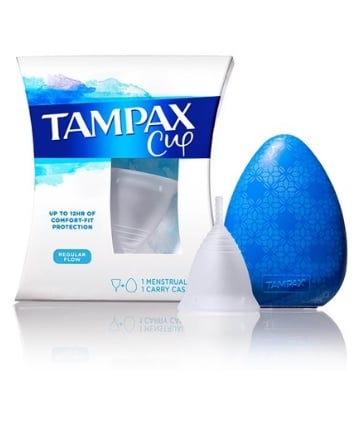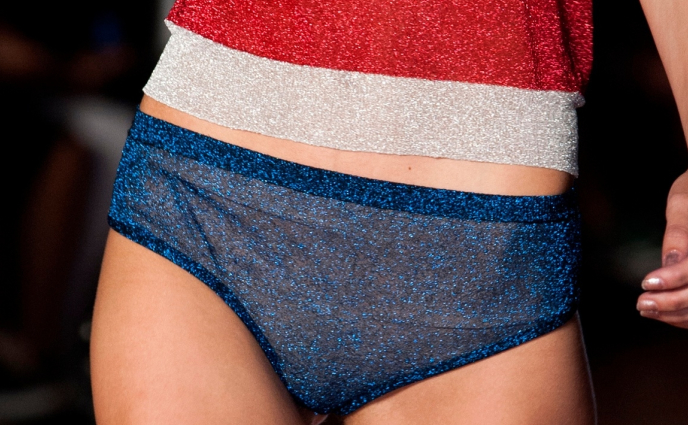Obviously, if you only need one menstrual cup for the next decade, you won't have to make the trek to the pharmacy every month just to purchase a box of tampons or pads. Even if you wish to replace your cup every year, you'll still be making way less pharmacy runs. Time and effort, saved!
Image via Imaxtree
Image via Imaxtree
On average, a woman uses 11,000 to 16,000 tampons during her lifetime... and all of them end up in a landfill, where they'll be degrading for centuries. (Yes, they're going to outlive you.) A reusable alternative like a menstrual cup is a much more sustainable option.
Image via Imaxtree
Image via Imaxtree
Earlier, we mentioned how a menstrual cup, when inserted correctly, creates an airtight seal. This helps prevents your most dreaded leaks because all the fluid goes directly into it. That's in stark contrast to tampons and pads, which both have an unfortunate tendency to leak.
Image via Imaxtree
Image via Imaxtree
Hey, we don't judge... but there's a reason why scented pads and tampons exist. However, when you're using menstrual cups, the menstrual fluid stays inside, which prevents any unwanted odors.
Try: Tampax Menstrual Cup, $39.99
Try: Tampax Menstrual Cup, $39.99
In addition to blood, tampons also absorb other vaginal fluids that are important in keeping the pH and bacterial balance inside your vagina healthy. When using menstrual cups, it only catches the menstrual fluid and helps keep your natural flora intact.
Image via Imaxtree
Image via Imaxtree









